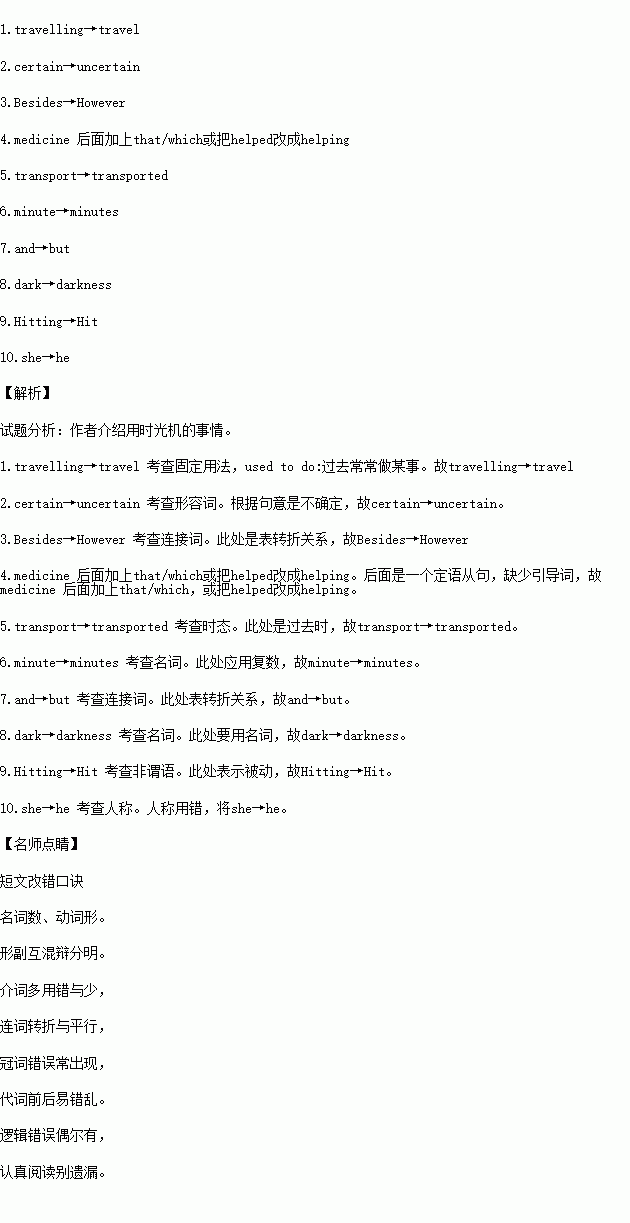Taking a shower is relaxing.You can hum a song, daydream or think about nothing, leaving the real world behind you.But did you know that showering can also benefit your mind?
A research by Scott Barry Kaufman, a psychologist from Yale University in the US interviewed over 3,000 people around the world.It turned out that nearly two-thirds of the interviewees said they had experienced new ideas in the shower and were more likely to have them in the shower than at work.
So why does a simple shower have such magic power? Science can explain it.
Showering can help to raise our level of dopamine, a hormone (荷尔蒙) closely related to our creativity.“People vary in terms of their level of creativity according to the activity of dopamine”, explained Alice Flaherty, a famous American neuroscientist.“Taking a warm shower can make us feel relaxed and therefore make the dopamine level rise and bring 'Aha!' moment to us.”
Besides the chemical changes, showering may give you a break from what you feel you have been stuck with.Especially when you have thought hard all day about a problem, jumping into the shower can keep you from the outside world so that you can focus on your inner feelings and memories.In this way, according to American psychologist Shelley H.Carson, author of Your Creative Brain, “a showering hour may turn into an ‘incubation (孵化) period’ for your ideas.”
Compared with sitting in front of a computer, taking a shower is something we do less frequently in our daily life.When showering, we get a fresh experience with the change of location, temperature and humidity.“New and unexpected experiences can lead to positive changes in thinking,” explained Kaufman.“Getting off the couch and jumping in the shower may create a distance and force you to think from a new point of view.”
Showering allows us to enjoy the creative juices of our minds, but it needn't just be the bathroom where you get your inspiration.For instance, Gertrude Stein, a female American writer and poet, got new ideas by driving around a farm and stopping at different cows until she found the one that most inspired her.So try to create your own way to free your mind, whether it's a walk near the ocean, a country drive or reading a book at home.
1.According to the article, what changes can showering cause?
A.Bringing the terrible moment to us.
B.Increasing the level of dopamine.
C.Leading to boredom or tiredness.
D.Setting the creative part of the brain free.
2.If one has focused on something all day, showering can help _______.
A.turn one’s attention inwards
B.draw one’s attention to the outside world
C.one make an important breakthrough
D.many chemical changes to take place
3.It can be inferred from the article that _______.
A.changes in the frequency of an action can create a new perspective
B.it is a good idea to talk with others about their sources of inspiration
C.our lives might feel longer and fuller if we frequently try new things
D.it is helpful to try something different rather than stay focused on a difficult task
4.The example of Gertrude Stein in the last paragraph is used to _______.
A.encourage readers to find their own ways of getting inspiration
B.point out to readers that it's hard to find inspiration
C.explain how to link inspiration with readers’ daily lives
D.show that creativity often comes from strange places
 名校课堂系列答案
名校课堂系列答案
